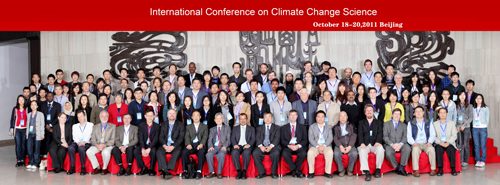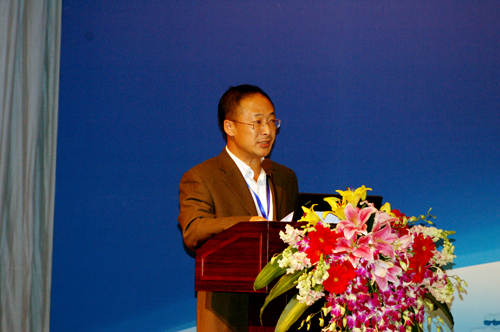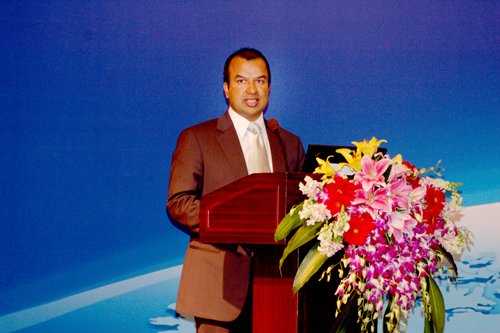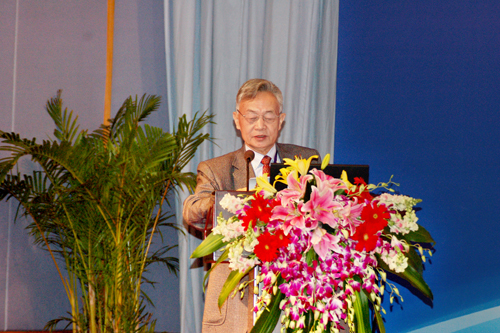The international Conference on Climate Change Science was held in Beijing
Date:2011-10-25
The International Conference on Climate Change Science was held in Beijing during Oct.18-20th, 2011. The conference is organized by Institute of Atmospheric Physics, (IAP CAS) and Commonwealth Scientific and Industrial Research Organization (CSIRO), Australia. Conference Sponsors are Chinese Academy of Sciences, CSIROAustralia, China NSFC, and Australian Government.
More than 130 scientists from all over the world and more than 100 young students joined the conference. In the opening ceremony, Mr. Jinghua Cao, Deputy Director of Bureau of International Co-operation, Chinese Academy of Sciences and Dr Subho Banerjee, Deputy Secretary of Department of Climate Change and Energy Efficiency of Australian government gave welcome remarks to all the participant and expressed the common understanding that Climate change is one of the most challenging issue that mankind is currently facing with, as it can greatly affect all sectors of the economy and the environment. Dr Subho Banerjee talked about the international outlook on climate change from an Australian perspective, he introduced that Australian government is working through the policy settings required for effective adaptation, and how this might work on the ground, so they tabled legislation in Parliament to implement its Clean Energy Future Plan this year. Putting a price on carbon is at the centre of Australia’s climate change strategy for lower emissions.
The three days' conference is a high-level international discussion between climate scientists in the world. Some of the most important topics will be discussed include:Climate change and variability, Climate modeling and projections, Impacts, adaptation and policy, extreme events, agriculture, water cycle and resources. Some global top scientists gave presentations to share their update research progress and insight on Climate Change Science, Dr. Qiang Fu from university of Washington gave the first presentation on the strengthening of the Brewer-Dobson circulation since 1979, indicating that the observed circulation changes may provide us an unique opportunity to test our understanding of the climate system as well as the capacity of current global climate models to simulate the response of the atmospheric general circulation to the anthropogenic forcing. Dr. Mike McPhaden discussed the impact of greenhouse gas forcing on ENSO and whether we can expect changes in the future based on analyses of global climate change models. As for climate adaptation, Dr. Andrew Ash from CSIRO suggested there were still significant challenges, but it had no doubt that planned was required. Dr.Dobes Leo thought maintaining some degree of flexibility of action is a far better approach to make policy on adaptation in the light of the uncertainty of climate change. Prof. Congbin Fu analyzed the aridity trend over Asia and Africa as well as human adaptation. Based on the simulation dataset from PMIP, Prof. Huijun Wang examined the models' capacity to reproduce the warmer and wetter climate and stronger monsoon during the mid-Holocene. All the participants actively joined the meaningful exchange and discussion. The conference must arouse more and more interaction and practical cooperation to the research of climate change globally.


Prof.Huijun Wang, IAP director

Dr Subho Banerjee, Deputy Secretary of Department of Climate
Change and Energy Efficiency of Australian government

CAS Academician Prof. Congbin Fu
